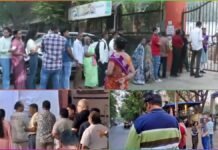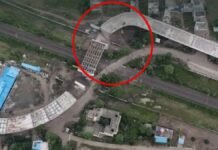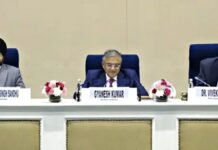
Key Points
- Govindan Ranganathan, director of Srisan Pharma, arrested in Chennai after nationwide manhunt
- Toxic cough syrup contained 48.6% diethylene glycol 486 times above permissible limits
- 23 children died in Chhindwara’s Parasia area after consuming contaminated Coldrif syrup
- Lab tests revealed deadly chemical levels; syrup banned on October 4, 2025
- Investigation exposed use of non-pharmaceutical grade chemicals and unsanitary manufacturing conditions
- Political blame game erupts between Madhya Pradesh and Tamil Nadu governments
Chennai: A significant development has emerged in the devastating cough syrup poisoning case that killed 23 children in Madhya Pradesh. The state government’s Special Investigation Team conducted a coordinated raid in Chennai during the night of October 9-10, 2025, leading to the arrest of Govindan Ranganathan, director of Srisan Pharmaceuticals the company behind the toxic medication. Ranganathan, who carried a bounty of ₹20,000 and had been evading authorities along with his wife for several weeks, is now in custody. This arrest represents a critical breakthrough in a case that has exposed serious vulnerabilities in India’s pharmaceutical regulatory system.
Timeline of the Tragedy
The catastrophe unfolded in September 2025 in Parasia tehsil of Chhindwara district, where children began dying mysteriously after September 7. The death toll mounted rapidly, with families losing their children to what initially appeared as unexplained kidney failure. It wasn’t until approximately six deaths occurred that local administration intervened on September 23, launching a formal investigation into the alarming pattern.
Medical examinations revealed a disturbing common factor all deceased children had consumed Coldrif cough syrup before falling critically ill. The medication was traced back to Srisan Pharmaceuticals’ manufacturing facility in Kanchipuram, Tamil Nadu, immediately expanding the investigation’s scope beyond state boundaries.
Shocking Laboratory Findings
The Tamil Nadu Drug Control Department’s laboratory analysis, completed on October 3, 2025, uncovered horrifying evidence. The Coldrif cough syrup contained diethylene glycol at a concentration of 48.6% an astronomical 486 times higher than the maximum permissible limit of 0.1%. Diethylene glycol is a highly toxic industrial chemical that causes severe kidney damage and organ failure when ingested, particularly lethal for children.
Acting swiftly on these findings, the Madhya Pradesh government issued an immediate ban on the syrup on October 4, 2025. Authorities filed an FIR against multiple parties, including Dr. Praveen Soni, the government physician in Parasia who prescribed the medication, along with the pharmaceutical company’s directors. Dr. Soni was arrested, triggering widespread controversy within the medical community.
Manufacturing Malpractices Exposed
The investigation’s deeper probe into Srisan Pharmaceuticals revealed systematic violations of pharmaceutical manufacturing standards. Investigators discovered that the company had procured non-pharmaceutical-grade chemicals—likely industrial-grade substances meant for non-medical applications—to produce medications intended for human consumption. The manufacturing facility itself operated under grossly unsanitary conditions, violating Good Manufacturing Practices (GMP) regulations mandatory for pharmaceutical production.
These findings suggest criminal negligence and potential cost-cutting measures that prioritized profits over patient safety, directly contributing to the children’s deaths.
Political Controversy and Medical Community Response
The case sparked intense political friction between Madhya Pradesh and Tamil Nadu. Narendra Shivaji Patel, Madhya Pradesh’s Minister of State for Health, publicly accused the Tamil Nadu government of regulatory negligence, questioning how such a dangerous product received approval and continued operations despite quality control mechanisms.
Meanwhile, the Indian Medical Association strongly protested Dr. Soni’s arrest, arguing that prescribing doctors cannot be held responsible for manufacturing defects they have no means to detect. The IMA wrote to Union Health Minister J.P. Nadda, emphasizing that accountability must primarily rest with the pharmaceutical company and the regulatory system that failed to prevent contaminated medicines from reaching the market.
Nationwide Implications
This tragedy raises fundamental questions about pharmaceutical regulation, drug quality control, and the safety of medicines distributed through government health facilities across India. The incident mirrors similar cases globally where contaminated medications have caused mass casualties, highlighting urgent needs for:
- Stricter enforcement of pharmaceutical manufacturing standards
- More frequent and rigorous quality testing of medicines
- Enhanced coordination between state drug control departments
- Stronger penalties for companies violating safety protocols
- Better protection mechanisms for vulnerable populations accessing government healthcare
The arrest of Govindan Ranganathan marks progress in seeking justice for the 23 children and their families, but the case continues to underscore critical systemic failures requiring comprehensive reform to prevent future tragedies.





















































